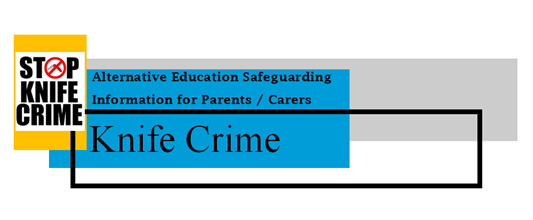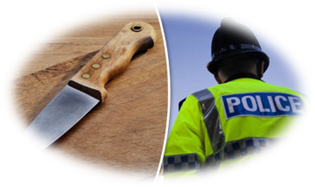Knife Crime


Whilst knife crime isn’t as common as some people think, it does happen and knives can affect everyone, not just people in gangs, therefore the key messages that we are keen to communicate throughout St Helen's to both young people and their parents/carers are:
Advice for young people
- If you carry a knife or weapon, you’re more likely to be attacked or threatened by other people or gangs who carry weapons
- Carrying a knife can also mean you are more likely to kill or injure yourself badly with your weapon or hurt or kill others
- If you have a knife, you may not plan to use it, but whether you do or not it is still illegal to carry a knife.
- Police can stop you and search you if they think your or your friends have a weapon. You could be arrested or go to prison for carrying, buying or selling a weapon. Possession of a knife can carry a prison sentence of up to 5 years – even if you don’t use it. If you stab someone and they die, you may face a life sentence
- Even if it’s not you who does it, if someone is injured or killed by a knife in your presence you could be sent to prison for being involved, in what is known as “Joint enterprise”
- It’s illegal for shops to sell knives to anyone under 18. Buying a knife under the age of 18 is an offence including kitchen knives and even cutlery
- If you have a criminal record you might not be accepted into a college or Uni, get a job or travel to some countries like USA, Australia and Canada
- It’s never too late to get help if you’re worried about knife crime or involved with it already. You could talk to your teacher, another adult you trust, or Childline on 0800 1111
Advice for parents/carers
- You can really help with knife crime prevention by talking through the issues with your child
- Find a quiet time and a bit of privacy, reassure them that they can be honest with you, and let them know you’ll support them without judgement
- Your child may be reluctant or scared to talk but be patient and try not to react straight away on what they may tell you. Encourage them to share their fears and worries
- They might not think you know anything about knife crime and the issues surrounding it, so take some time beforehand to read up on some of the facts on one of the information websites below
- Raise the point that walking away from confrontation or a fight is the braver thing to do. If someone pulls a knife on them, the safest and wisest thing to do is walk away. In ten years’ time nobody will remember they walked away, but it they stand their ground the consequences could last a lifetime
- It may be that you learn some worrying things, try not to overact but don’t feel you have to deal with this on your own, there is support available

Concerns about Knife Crime
- If you are a child and are worried about your own or a friend’s involvement with knives you can call Childline on 0800 1111
- If you are worried about someone who may be carrying knives, you can give information anonymously by calling Crimestoppers on 0800 555 111
In an emergency call Police on 999
If you have any further questions or concerns, please contact
(Mrs K. Crook Safeguarding & Pastoral Manger)





